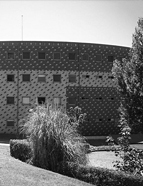

Indeed, the task of drafting a compendium "of Roman and National Law History" was, in fact, included in that vast array of duties. However, it is highly likely that Mello Freire hastened to take a step in the same direction, taking the lead over his distinguished colleague. Thus emerged the famous Historiae Iuris Civilis Lusitani Liber Singularis by Pascoal José de Mello Freire dos Reis, published in 1788 by the initiative of the Royal Academy of Sciences, which would receive official endorsement for teaching purposes. Nevertheless, Ricardo Raimundo Nogueira did not falter in the original project, as his teachings yielded valuable lectures on the History of National Law, but the priority of time is ruthless and did not prevent the future from crowning Mello Freire as the "founder of the history of Portuguese law."
Fuelling somewhat progressive currents of opinion in various cultural fields, Portuguese intellectuals outside the university sphere ceased to be engulfed in oblivion and death. Around this time, the Lisbon Academy of Sciences, created in 1779, began to shine forth, and its intense efforts rapidly advanced the knowledge of legal history. In the university cloister, interest in the successive sources of knowledge of Portuguese law remained very much alive. Towards the end of the 18th century, the Royal Press of the University of Coimbra promoted an elaborate publication that included the Ordenações Afonsinas [Ordinances of Dom Afonso V] the Ordenações Manuelinas [Manueline Ordinances] the interim compilation known as the Colecção das Leis Extravagantes de Duarte Nunes do Lião [Collection of Uncodified Laws by Duarte Nunes do Lião], the Ordenações Filipinas [Philippine Ordinations] several volumes dedicated to miscellaneous legislation post-1603, and a collection of judgements from the higher courts, namely, the Casa da Suplicação [High Court of Appeal] and the Casa do Cível [Court of Appeal]. This prolific activity only became possible because the editorial management framework had radically changed as far as the great national legislative monuments were concerned. The Charter of 16 December 1773 had granted the University of Coimbra the exclusive privilege to print the Ordenações do Reino [Ordinances of the Kingdom] which had previously been held by the now-extinct Monastery of São Vicente de Fora. This prerogative was later extended by the royal resolution of 2 September 1786, concerning uncodified law.
